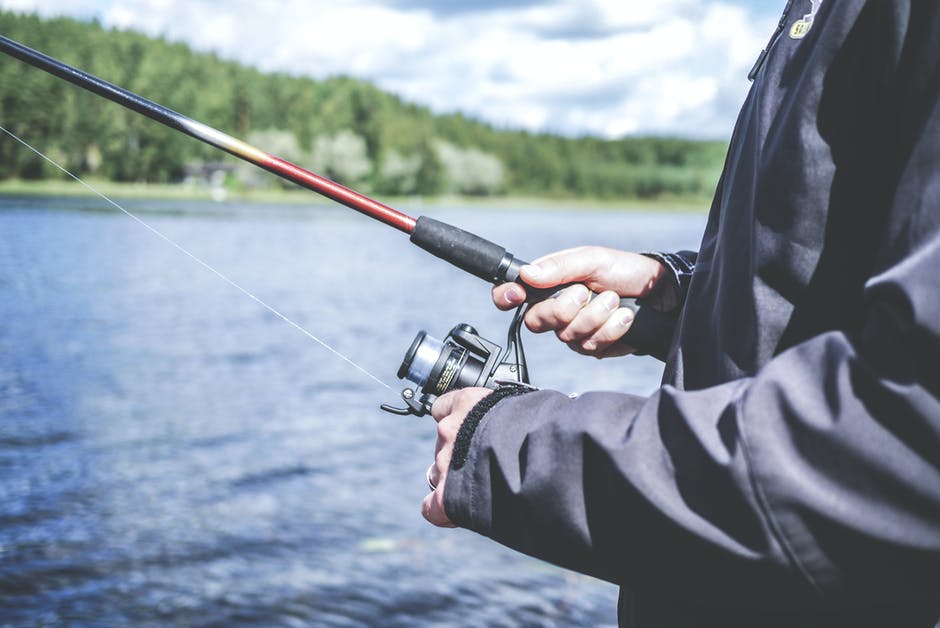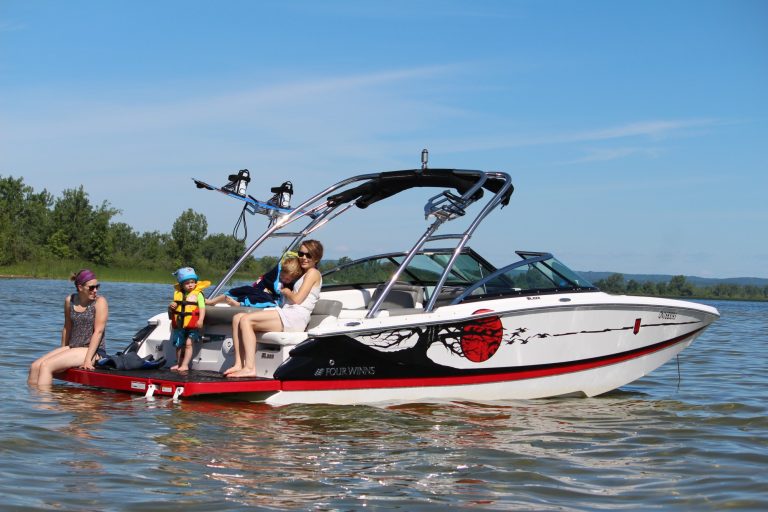A Complete Fishing Guide for Beginners
Fishing is one of the most popular hobbies in the United States.
If you look at the numbers alone, more than 50 million Americans take to rivers, lakes, and the ocean to fish every year. This number is also on the rise, indicating that fishing has never been more popular than it is today.
With the right fishing tips, you can master the art of catching fish in no time. This is why it’s so important to look for a complete fishing guide that you can use as a reference in the future. You’ll always be able to refer back to it whenever you’re not sure about something.
Interested in learning how to master the art of fishing? Here’s a complete fishing guide on how to get started.
Learning To Fish
Fishing has been around for thousands of years. This prehistoric practice is not unique to humans as many other animals also fish for their food. Bears and even some birds have evolved to become the ultimate fishing machines.
Modern-day commercial fishing is a massive industry around the world. This is because we rely on billions of tons of fish to fill our grocery stores every year. However, fishing has remained a core part of our culture and identity.
This is why fishing has become such a popular hobby and sport around the world. As mentioned above, fishing is one of the most popular hobbies in the United States. With over 50 million Americans fishing every year, this is almost 15% of the population.
Competitive Fishing
Fishing is taken seriously as a competitive sport. Fishing groups and organizations come together to host tournaments to encourage competitive fishing. In this setting, fishing experts from around the world gather at a lake or river.
They would then fish for a certain amount of time and try to catch the largest fish possible. The largest fish from each competitor will be weighed to crown a winner.
The Benefits of Fishing
While you can compete professionally, many people love fishing because of the wellness benefits of the activity. Fishing is not fast-paced but rather a calm, thoughtful process. This process can help give you time to slow down and reflect during a busy week.
In many cases, fishing is seen as therapeutic and can help add some outdoor time for those who’re busy in the office all week. This is why it’s such a great hobby to pick up for men and women of all ages.
Basic Fishing Guide for Beginners
If you’re new to the world of fishing, there are a few basic fishing tips that you should start with. This will give you a good foundation that you can build on as you gain experience later. Here’s a quick guide on the basics of fishing.
Getting a Fishing License
The first thing that you should do before you start fishing is to get a fishing license. The license requirements may vary from state to state, so it’s important to double-check what you need for your license. Once you have your fishing license, you can plan your first fishing trip.
Fishing Etiquette
Fishing etiquette is incredibly important to keep in mind before you go fishing. Learning this early will help ensure that you don’t anger other people that may also be fishing in the area. The most important thing to remember is to give other anglers space and to always leave the place cleaner than you found it.
Essential Gear
When it comes to fishing, there are a few pieces of gear that you need to invest in. Buying high-quality gear is expensive, so beginners tend to go for the more affordable options. However, it’s important to remember that affordable options don’t tend to last as long.
This is why you should always try to strike a balance between quality and price. You can always talk to your local experts for guidance so that you buy the right stuff. Here’s a quick look at the gear you will need for your first day of fishing.
Fishing Rod and Reel
The most important part of fishing is to have a fishing rod. While you can fish with a net, fishing rods make everything much easier. Fishing rods are paired with reels that you can use to catch and pull the fish to you.
There are a few beginner combos that you can look out for. These combos include a fishing rod, a reel, and other pieces of gear that you may need. In most cases, buying these packs is more affordable than buying everything individually.
Lures and Bait
The next step in the fishing process is the lures and bait. This is attached to the hook and is used to attract fish to bite on the line. You can buy these separately, but they’re often included in the beginner packs.
Fishing Skills
Once you have all your gear ready, there are a few basic fishing skills that you should keep in mind. These fishing skills will help you get a good idea of the basics of fishing. Here’s what you need to know.
Tying Knots
Tying knots is a simple yet important skill to master. You may be required to tie the hook to the line or bait to the hook. This is important to make sure that everything is secure before you cast the line into the water.
Catching Bait
While you can buy bait, sometimes it’s better to catch bait. You can catch simple bait in shallow water such as shrimp and small fish. However, you can also catch a bigger fish and cut it up for smaller pieces of bait.
Reading Water
Reading water is an important skill that will help you fish more productively. This is a simple skill to help you spot where fish are more likely to reside. If there are any trees close to the shore, fish may be hiding underneath the shade.
Catching Fish
The last step of the fishing process is the most exciting. This is the step where you cast your line and wait for a fish to bite. Here’s a quick look at this process and the basics that you should know.
Casting
Casting is an important part of the process. Casting with a spinning reel is the most simple and intuitive way to place the lure as far into the water as possible. You can start with the lure around six inches of the line from the end of your rod.
Once you throw the rod over your shoulder, the line should automatically spin and send the lure flying into the water. In order to cast the line, you’ll have to unlock it and place your finger on the line to hold it in place. When you cast, you can remove your finger so that the line can spin.
Hooking
When hooking a fish, there are a few things that you want to keep in mind. You don’t want your fish to spit out the lure or break the line because of the weight of the fish. This is why it’s important to reel in the fish as soon as the fish bites on the line.
This keeps the entire process simple and efficient.
Landing
Once you have hooked your fish successfully, you can then reel in the fish. When the fish is close to shore, you can use a fish net to scoop up the fish. It’s important to scoop up the fish early and prevent it from hitting any rocks or banks.
If you plan to release the fish back into the water, don’t keep it out of water longer than you can hold your breath. This will ensure that the fish is still healthy and happy.
The Best Fishing Tips and Tricks
When it comes to learning how to fish, there are a few key fishing tips that you can use to improve your skills. These tips will help you learn the basics and build on them to become better at fishing. Here’s a quick look at these important fishing tips.
1. Learn from Pros
If you’re learning about fishing, always look at how the pros are doing it. Fishing pros tend to have a massive presence on social media platforms like Facebook and YouTube. You can learn a lot by watching their content and seeing what tricks they use to fish.
2. Watch YouTube Videos
As mentioned above, social media platforms are a great source of knowledge when you’re trying to master a new skill. YouTube is often the best option because you can watch detailed videos that will explain the entire process clearly.
If you want to learn how to attach bait to a hook or learn a new knot, YouTube is the first place that you should start.
3. Local Fishing Groups
Fishing is very community focused compared to other hobbies. This means that you’re very likely to find other people that love fishing in your area. Joining fishing groups can help you learn from others in your area while making lifelong friends in the process.
4. Hire a Fishing Guide
When it comes to planning fishing trips, consider hiring a fishing guide. Hiring a fishing guide is like partnering with a pro that will help you every step of the way. From finding the right spots to explaining the different kinds of fish in the area, fishing guides can do it all.
The Kenai River Recon guide service is a perfect example of this if you’re planning a fishing trip to Alaska. This guide service will help you make the most of your fishing trip.
5. Invest In Quality Gear
When it comes to gear, it’s always a good idea to invest in quality. While quality gear is always more expensive, the quality makes it worth the price in the long run. This is because it’s less likely to crack or break anytime soon.
If you’re not sure about which brands to get, visit your local fishing shop for advice. The experts will be able to find the best brands for your individual experience and skill level. In this way, you’re making the right investment for yourself.
6. Don’t Stop Learning
Whether you’ve been fishing for a day or a decade, there’s always more to learn. This is why you should always have a learning attitude in everything you do. Be a sponge for information and you will quickly find yourself an expert in the field.
7. Build Good Habits
Beginners should always focus on the basics. This will give you a good foundation that you can build on in the future. However, it’s important to build good habits at an early stage so that you don’t have to make corrections in the future.
From fishing etiquette to advanced skills, building good habits from the beginning will help you become a pro in no time.
Master The Art of Fishing
If you’re excited to learn how to fish, hopefully, this fishing guide helped you get a good idea of the basics. Once you have the basic fishing tips down, you can expand on your skills. This will allow you to move up and try more complex baits to catch bigger fish.
It’s important to remember that there’s always more to learn when it comes to fishing. This means that you should keep an eye out for the latest news and advice from seasoned pros. With all this in mind, you can get started and master the art of fishing.






